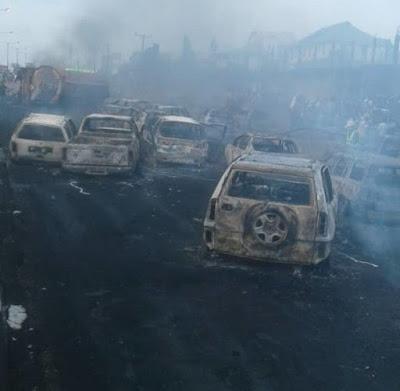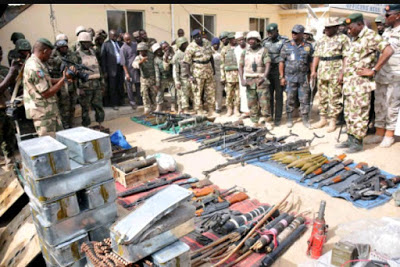Stakeholders in the nation’s haulage sub-sector have called for a ban on importation of articulated vehicles exceeding 10 years from the date of manufacture into the country.
In a communique issued at the end of a one-day summit in Abuja on Monday evening, they suggested a Jan. 1, 2020, take-off date for the proposed ban.
The communique was circulated to media houses by the Public Education Officer and spokesman of the Federal Road Safety Corps (FRSC), Mr Bisi Kazeem.
The stakeholders also called for a regime of biannual mandatory certification of all haulage vehicles to ensure compliance with minimum safety standards.
The forum was convened by the Secretary to the Government of the Federation (SGF), Mr Boss Mustapha, to arrest the spate of road accidents involving fuel tankers and articulated vehicles in the country.
It followed the June 28 fuel tanker accident at Otedola Bridge in Lagos that left 12 persons dead and over 50 vehicles burnt.
In attendance were policy/law makers, representatives of security agencies, heads of various transport management agencies, transport unions and petroleum industry players.
The participants identified lack of compliance with minimum road safety standards in the sector as one of the major causes of carnage on the nation’s highways.
Preliminary findings from an investigation conducted by the Lagos State Government into the June 28 incident show that the tanker truck involved carried far more than its haulage capacity.
The stakeholders also agreed that standard speed limiters should be installed on all haulage vehicles in Nigeria.
According to them, articulated vehicles and trucks without safety valves and required number plates would henceforth be disallowed from loading.
“The Safe-To-Load programme will continue to be enforced by relevant agencies at all loading points and the Department of Petroleum Resources (DPR).
“FRSC and other relevant agencies should immediately harmonise operating safety requirements at all Tank Farms,” the forum recommended.
The stakeholders stressed the need for periodic checks of haulage vehicles at all loading points.
Payment of the National Transportation Allowances (NTA) and bridging claims to tanker operators, they resolved, would henceforth be contingent on compliance with minimum safety standards.
The forum also resolved that single operators of haulage vehicles must be duly registered with the National Association of Road Transport Owners (NARTO), and should comply with the provisions of the Road Transport Safety Standardisation Scheme (RTSSS).
On FRSC, they recommended that the Corps should establish appropriate command and control centres to monitor and ensure safety on the highways.
They emphasised the need for continuous enlightenment of stakeholders and the general public at all loading points and rest areas of haulage vehicles.
The participants called for strict enforcement of the Federal Highways (Control of Dimensions, Weights and Axle Load of Heavy Duty Goods Transport Vehicles) Regulations, 2018, will be enforced.
In addition, they recommended that government should work closely with the Bank of Industry and other financial institutions to establish a Fleet Acquisition Renewal Scheme for haulage operators.
“Haulage vehicles conveying hazardous materials must be clearly labelled in conformity with the Highway Code,’’ they added.
Besides, the forum endorsed the convocation of biannual meetings to sustain government’s engagement with stakeholders for exchange of ideas and information to sustain safer road culture in the country.
(NAN)


































































